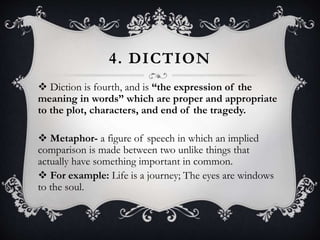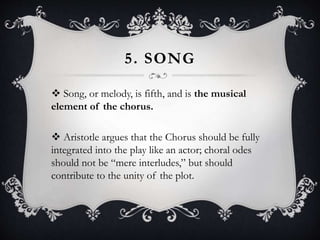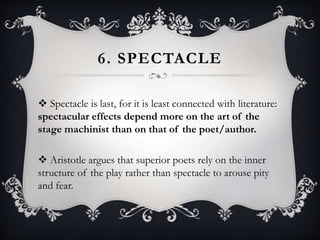This document outlines the key elements of Greek tragedy according to Aristotle. It defines tragedy as the downfall of a basically good protagonist through some error or misjudgment. The three principles are that tragedy should evoke pity and fear in the audience, the tragic hero must be good, and the hero's demise comes from personal error. Other elements are plot, characters (the tragic hero), thought (theme), diction (literary devices), song (chorus), and spectacle (least important). The plot must have beginning, middle, end, and cause-effect chain leading to climax and resolution. The tragic hero's flaw and hubris often lead to nemesis or downfall.
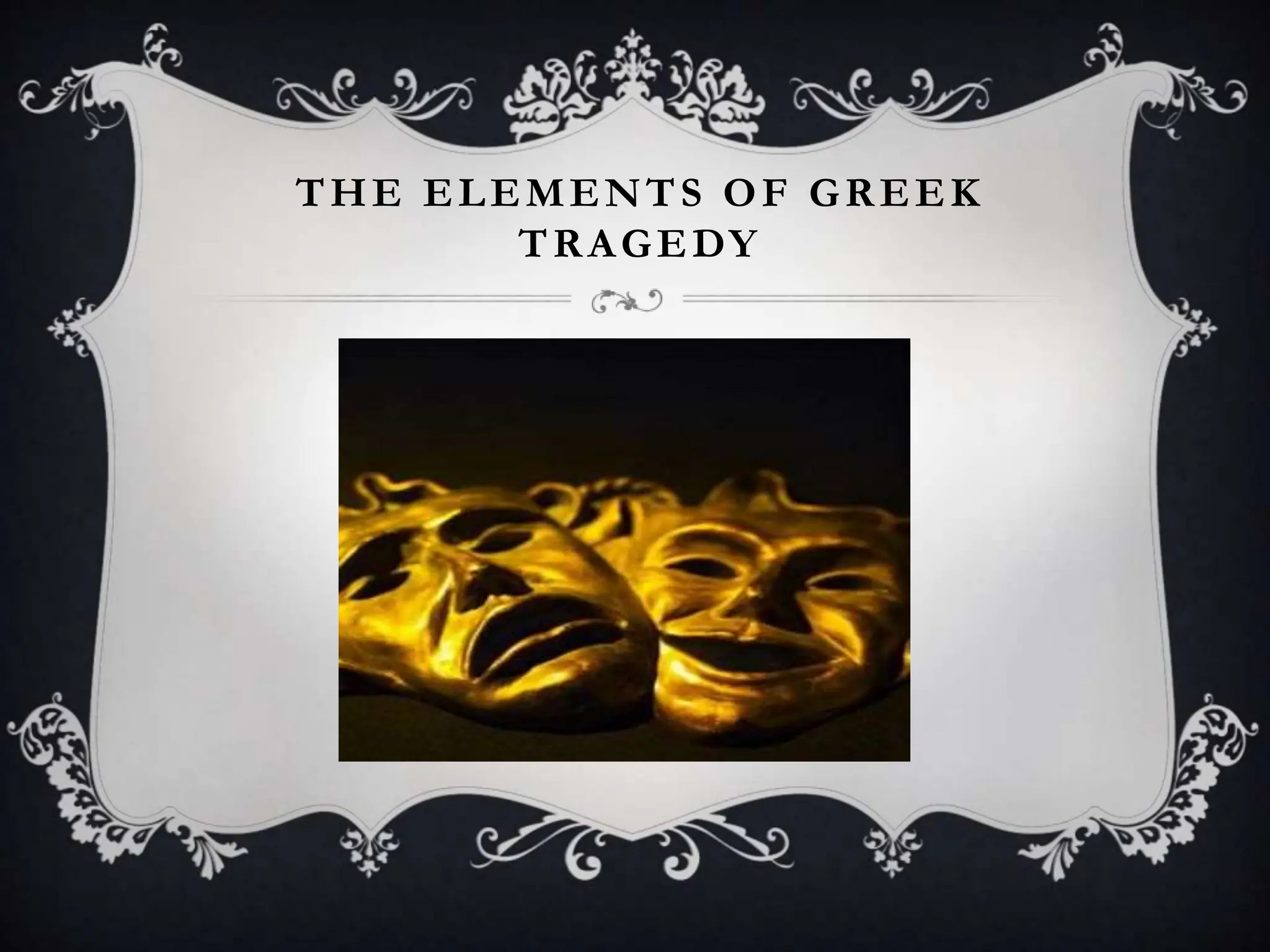
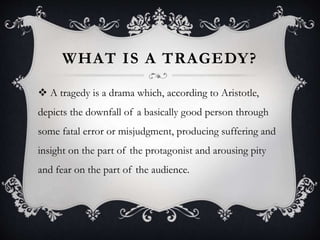
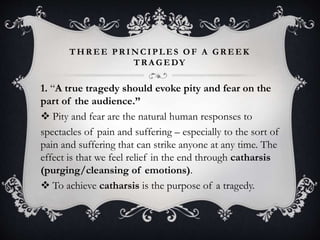
![2. “The tragic hero [protagonist] must be
essentially admirable and good.”
The fall of a scoundrel or villain evokes applause
rather than pity. Audiences cheer when the bad guy
goes down. On the other hand, the downfall of an
essentially good person disturbs us and stirs our
compassion. As a rule, the nobler and more truly
admirable a person is, the greater will be our anxiety or
grief at his or her downfall.](https://image.slidesharecdn.com/classicaltragedy-240229201750-c4a4457c/85/about-Classical-Tragedy-by-jahangir-pptx-4-320.jpg)
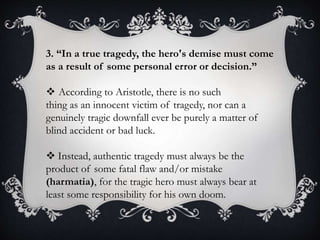
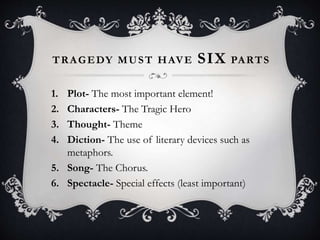
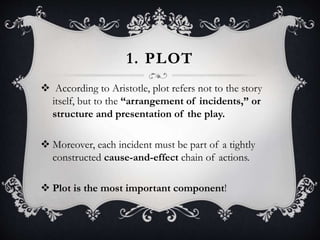
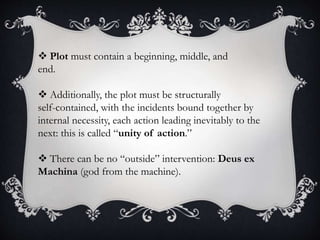
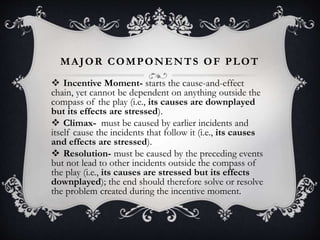
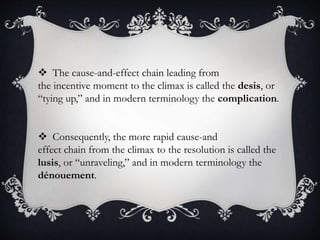
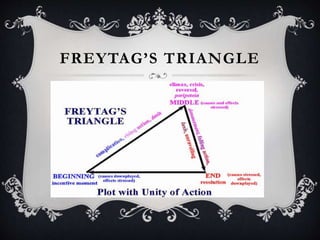
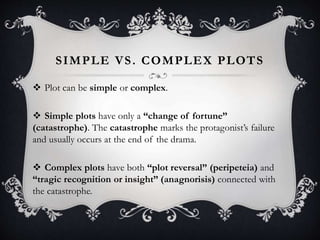
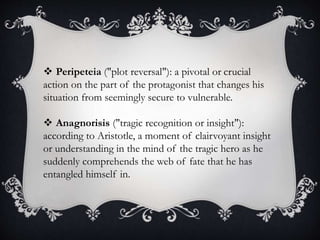
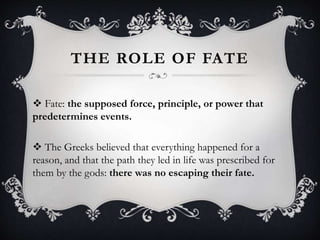
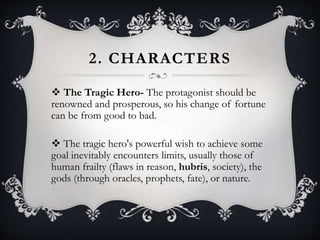
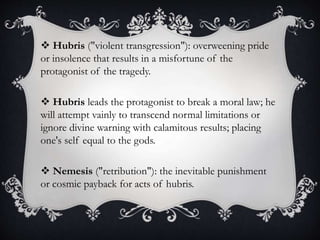
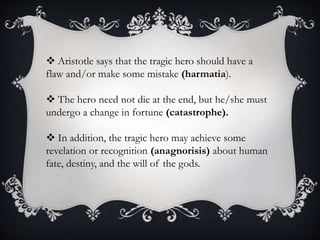
![3. THOUGHT
Thought is third in importance, and is found
“where something is proved to be or not to be,
or a general maxim [truth, principle, or rule of
conduct] is enunciated.”
Thought can also reveal the theme (main
idea/message) of a play.](https://image.slidesharecdn.com/classicaltragedy-240229201750-c4a4457c/85/about-Classical-Tragedy-by-jahangir-pptx-18-320.jpg)
